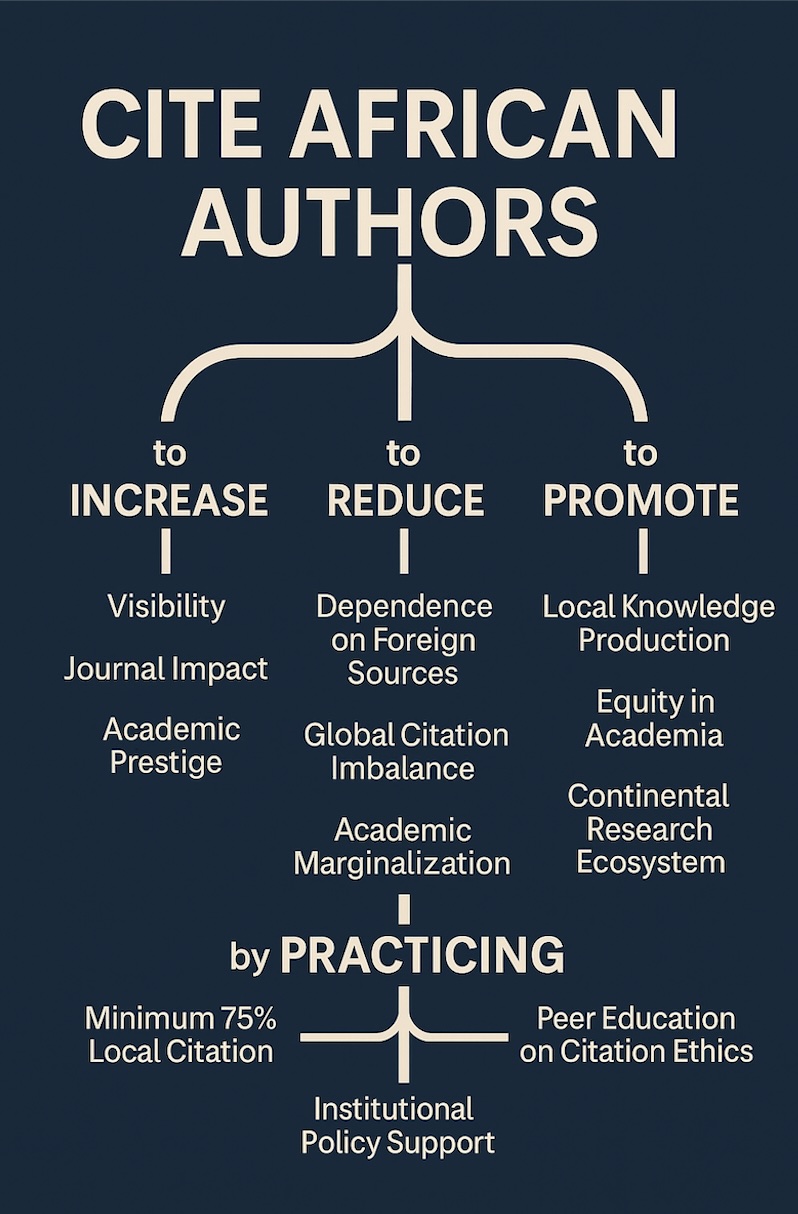
Citing local is the simplest way to empower African authors, journals and publishers
Citing African authors contributes directly to increasing their visibility, citation rates, and the impact of the journals they publish in. Unfortunately, many African scholars still overwhelmingly reference authors from outside the continent—authors who, in most cases, rarely cite African research in return. This imbalance perpetuates the dominance and prestige of non-African journals and researchers, while diminishing the global influence of African scholarship. The result? African authors and publishers continue to lose out in terms of recognition, funding opportunities, and academic influence. The solution to this issue is neither difficult nor complex: make it a priority to cite African literature—aim for at least 75% of your references to be from African scholars and journals. When we commit to this practice collectively, we build each other up, strengthen our publishing ecosystem, and ensure that African voices shape global knowledge production.
If you are not an African author, you can support African scholarship by intentionally citing African researchers, particularly when writing on African contexts or global issues that include African perspectives. Engage with African-led journals and platforms such as African Journals Online (AJOL), and promote bibliodiversity in your own research and teaching. Building equitable collaborations with African scholars—where contributions are fairly acknowledged and partnerships are mutually beneficial—is crucial. Avoid extractive or parachute research, and instead advocate for inclusive practices in conferences, peer review, and publishing. Support African voices and advocate for their inclusion in curricula, citation lists, and editorial spaces, in the process yourebalance global academic visibility and contribute to a more just and representative knowledge ecosystem.
Use the form below to subscibe to Owia Bulletin.
Discover more from Africa Social Work & Development Network | Mtandao waKazi zaJamii naMaendeleo waAfrika
Subscribe to get the latest posts sent to your email.


